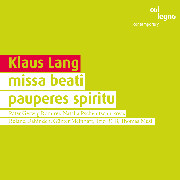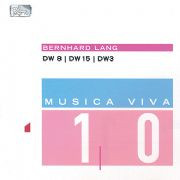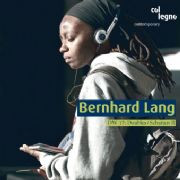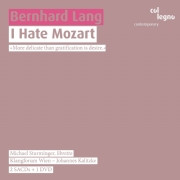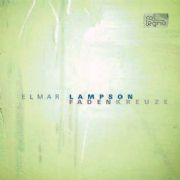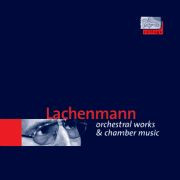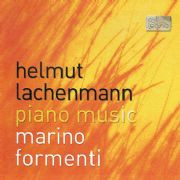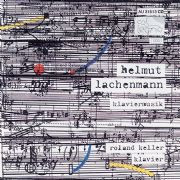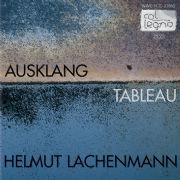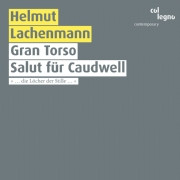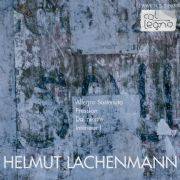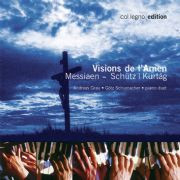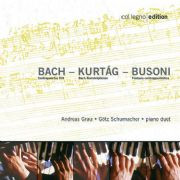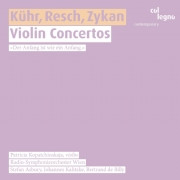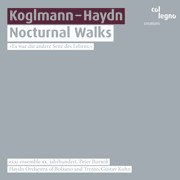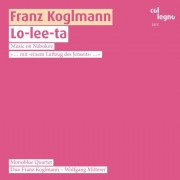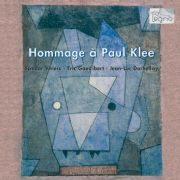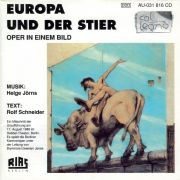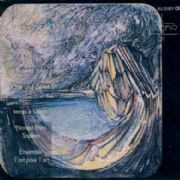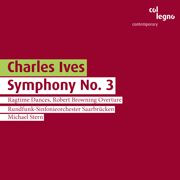★Col Legno
missa beati pauperes spiritu
In cooperation with IEM Graz and musikprotokoll 2005 (steirischer herbst, ORF). Excursion into the Middle Ages: Klaus Lang’s latest composition breathes new life into Gregorian chant more than a thousand years old. One hears the traditional sequence …
Musica Viva 10
“The first pieces of the Differenz/Wiederholungs-Serie were composed by transcribing loop techniques of different turntable lists and filmmakers … What appealed to me especially was the concept of erratic, asymmetric loops corresponding to the crack …
DW 17: Doubles / Schatten II
The unfolding of the differences is succeeded by ever new ramifications, versions, series. DW 17 Doubles/Schatten II as a new phase in the DW-Kosmos.
I Hate Mozart
"Why do I have to sing Mozart all the time?", the tenor in Bernhard Lang's opera "I hate Mozart" cries out in despair. Well, why always listen to Mozart operas and not an opera of the early 21st century for a change? With their provocatively named co…
FADENKREUZE
For Elmar Lampson, composition and the phenomenology of music overlap as disciplines, and attentive listening is as critical to his works' reception as is analysis of their carefully timed structures or pitch content. Lampson's String Quartet No. 2 (…
Orchestral Works & Chamber Music
Hardly any other composer has ever been as far removed from conservatism as Helmut Lachenmann. In all his oeuvre his listeners are never permitted to lean back comfortably even for a moment in expectation of the well-known and familiar. Again and aga…
Piano Music
Music as a message without words from far away – from our inner selves. Piano music as metaphor for the thrilling adventures of human existence.
Klaviermusik
The sovereign and immediate approach Lachenmann takes in his Fünf Variationen über ein Thema von F. Schubert (1956) lends Schubert's slight Deutsche Tanz D 643a special and almost heroic flavor. But only five years later, Lachenmann had already trave…
Ausklang / Tableau
The title Ausklang (Final Notes, or Fading Away) is intended to be understood literally. Lachenmann's Musik für Klavier und Or-chester is centrally concerned with final notes and sounds fading away. In particular, it is concerned with piano sounds cr…
Gran Torso / Salut für Caudwell
In 1988 the first issue of these recordings of Gran Torso and Salut für Caudwell was awarded the Preis der Deutschen Schallplattenkritik (German Record Critics' Award); and neither compositions nor recordings have lost any of their value up to today.…
Allegro Sostenuto / Pression / Dal Niente / Intérieur I
Both Sostenuto and Dal niente were composed for the clarinetist Eduard Brunner. “As in the earlier Ausklang for piano and orchestra, the musical material is determined by the interplay of the experiences of resonance on the one hand and motion on the…
Visions de l\'Amen
Last things and Christian visions: György Kurtág's reflections on Heinrich Schütz, and Olivier Messiaen in search of the "Amen."
Piano Duet
Before the epigones take over the stage we are given a chance to hear out Bach himself: the unfinished four-voice Contrapunctus XIV from the Art of the Fugue marks the starting point of Andreas Grau's and Götz Schumacher's remarkable exploration of t…
Violin Concertos
The exceptional violinist Patricia Kopatchinskaja not only impresses audiences and critics – she also inspires eminent composers like Kühr, Resch & Zykan.
Nocturnal Walks
The truth is out: Haydn was a jazz composer! Franz Koglmann took the diligent classic's 27th symphony with him on his Nocturnal Walks.
Lo-lee-ta
Vladimir Nabokov: the master of "chamber music in prose" (literary critic Marcel Reich-Ranicki) and composer of crackling word sonatas. Franz Koglmann: a commuter between jazz/avant-garde and literature, and writer of intimate sound novellas. It was …
Hommage à Paul Klee
With his Pedagogical Sketchbook often regarded as a virtual manual in composition, Paul Klee has exerted a far-reaching influence on modern music. Few composers were so profoundly affected as Sándor Veress, whose encounter with Klee's work after flee…
Europa und der Stier
Myths are human experiences congealed into fables. Rolf Schneider, expelled from the GDR Writers' Association in 1979, presents the story of Europa and the bull as a dirty joke, a great comical love story, the story of a girl used and discarded by a …
Orte und Zeiten/Tempi e Luoghi
While traveling through time in Italy and Germany, Thomas Jahn was particularily intrigued by the “culture of resistance”. The poems underlying the cycle are all concerned with resistance – resistance against war, against the lack of affection and ag…
Symphony No. 3
Charles Ives (1874-1954) earned his living by selling insurance policies to his contemporaries. Besides, he took a great interest in literature, philosophy and, first and foremost, music. And what came of it? The most original modernist music one cou…
